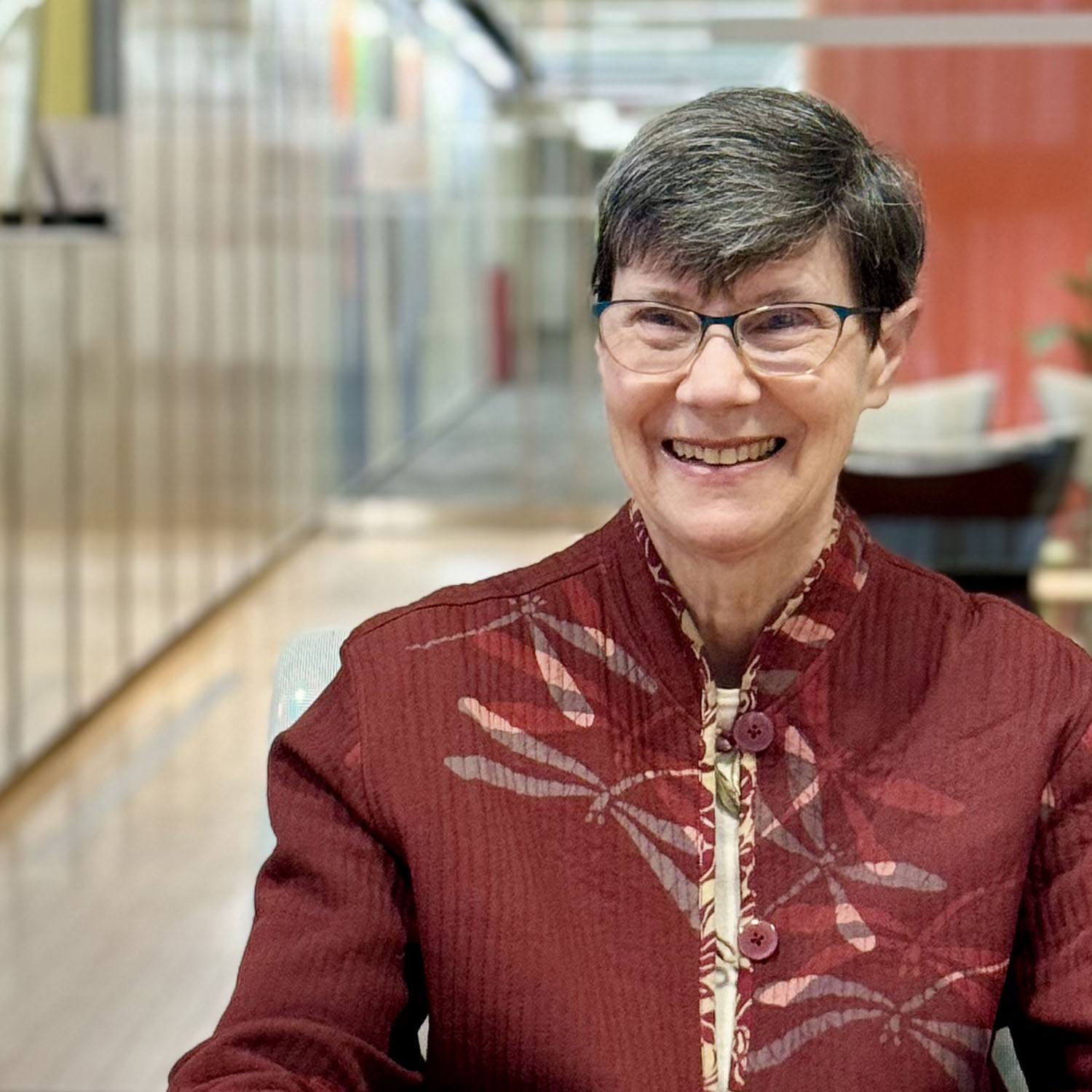Assembling the Right Ingredients for Nutrition and Good Health
Director’s Page
Helene M. Langevin, M.D.
September 29, 2023
Traditionally, knowing how to procure and prepare safe, nutritious, and palatable food is learned at home. Unfortunately, this knowledge is becoming less and less passed down through the generations. Fast food, ready-made meals, and “takeout” have become so convenient—and families rely on them so much—that many children today, and even in previous generations, have grown up without learning how to cook. These factors are among the many fueling high rates of obesity and poor nutritional status in the United States, and associated chronic conditions linked to poor nutrition, like type 2 diabetes, hyperlipidemia, and nonalcoholic fatty liver disease.
Enter teaching kitchens: a nationwide movement to teach cooking skills that is taking hold in community settings. Over the summer, I had the opportunity to attend the inaugural Convening on Teaching Kitchens and Food Is Medicine, co-hosted by the Teaching Kitchen Collaborative (TKC) and Google, and supported by the Ardmore Institute of Health. Founded by Dr. David Eisenberg, TKC aims to promote better health by helping people gain the knowledge, skills, and confidence to cook healthy foods at home, and is designed to interrupt the cascade of factors that contribute to chronic health conditions like diabetes and heart disease. Attendees included representatives from the U.S. Department of Veterans Affairs, who shared how they are applying the approach through their own Healthy Teaching Kitchen program to help veterans promote better health.
These programs illustrate something that’s true across all communities. Good nutrition might sound like a simple concept, but there is much more to it than simply telling people, “Eat healthy foods!” That’s what makes the Teaching Kitchen Collaborative unique. They teach participants not just about cooking and healthy eating, but also talk about physical activity, stress reduction, and behavioral health needs.
The holistic nature of teaching kitchens is reflected in the approach we’re taking to research on whole person health, and nutrition as part of that, at the National Center for Complementary and Integrative Health. During the visit, I was proud to share how our research on nutrition has evolved over time and the ways in which our continued work will advance what we know about nutritional interventions for disease prevention and resilience over a lifetime.
Gaining a better understanding of nutritional interventions will require a reset on how we view nutrition. We often gravitate toward reductionist thinking and consider nutrition in terms of specific macro- or micronutrients. The result is that consumers often address real or perceived deficiencies through supplements. In 2021, Americans were estimated to spend $50 billion on dietary supplements.
One important step in widening the lens on nutrition research will be examining the health benefits of consuming foods rich with specific components, compared to extracting those same components and delivering them through a pill. A growing body of research suggests that replacing nutritious foods with dietary supplements may come at the expense of our health—not only in missed opportunities to improve our health, but also in potentially introducing harms, as demonstrated in research finding that the risk of atrial fibrillation increases with doses of omega-3 fatty acids that are greater than could be consumed from food alone. These issues may be driven by research that has historically focused on specific food components, while not considering the complex set of compounds that are also present and may be necessary to provide benefits.
As our nutrition portfolio continues to grow—especially through collaboration with other National Institutes of Health Institutes, Centers, and Offices—I’m confident that the research will help us better understand the complex interconnections between our health and how we nourish our bodies.
